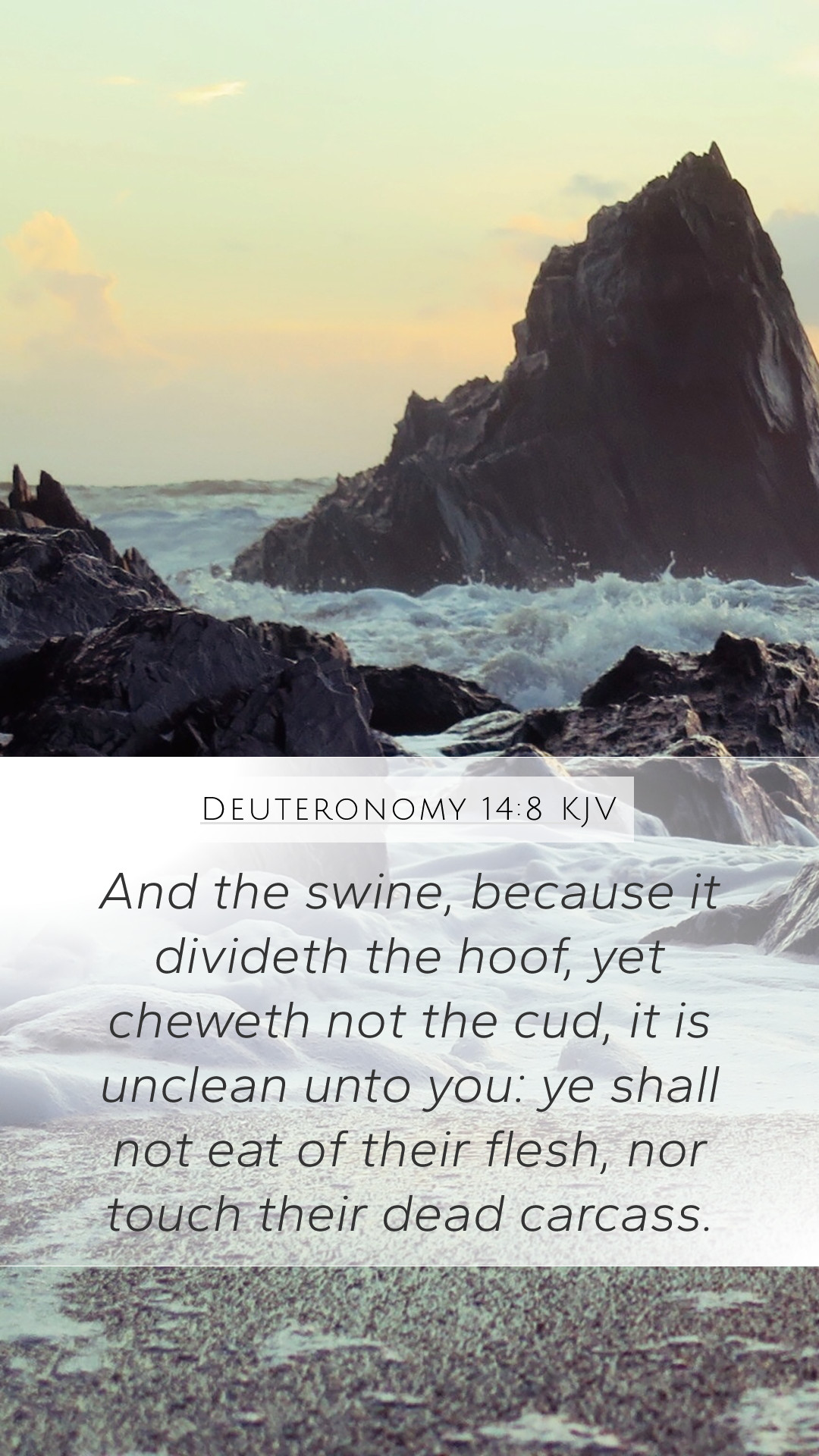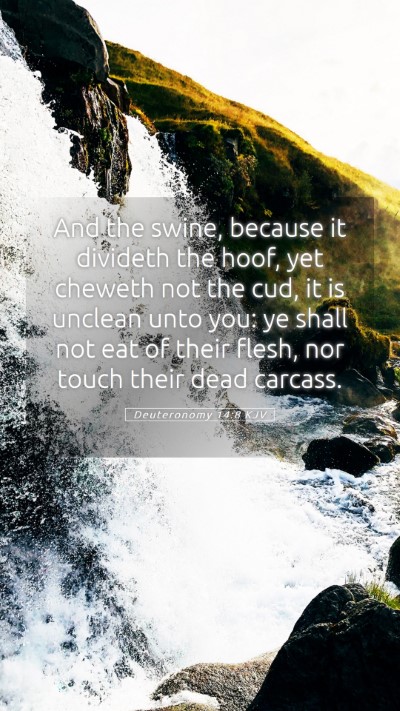Understanding Deuteronomy 14:8 - Bible Verse Commentary
Deuteronomy 14:8 presents specific dietary laws that reflect the holiness and separation required of God’s people. The verse states:
"And the swine, because it divide the hoof, yet cheweth not the cud, it is unclean unto you: ye shall not eat of their flesh, nor touch their dead carcass."
Meaning of Deuteronomy 14:8
This verse highlights God's laws concerning clean and unclean animals, emphasizing the importance of obedience and the distinctiveness of the Israelites as His chosen people.
Insights from Public Domain Commentaries
-
Matthew Henry:
Henry notes that the prohibition against eating swine (pigs) symbolizes a broader principle of purity and dedication to God. He highlights the importance of adhering to divine commandments as an expression of faith and obedience.
-
Albert Barnes:
Barnes emphasizes the rationale behind these dietary restrictions, arguing that they serve as a means of distinguishing between the Israelites and the surrounding nations. These laws were designed not only for health but also as a reminder of their unique covenant relationship with God.
-
Adam Clarke:
Clarke elaborates on the classification of animals, explaining that the criteria for clean versus unclean involve both physical attributes and spiritual implications. He points out the need for God's people to maintain a lifestyle that reflects holiness and obedience to divine instruction.
Bible Verse Interpretations
The interpretation of this verse invites deeper reflection on the nature of spiritual cleanliness. The metaphorical implications of “clean” and “unclean” extend beyond dietary laws, urging believers to consider their spiritual practices and associations.
Scripture Analysis - Clean and Unclean
The terminology here sets a precedent for understanding holiness within the covenant community. The act of not consuming unclean animals serves as a discipline that shapes the moral and spiritual identity of the Israelites.
Implications for Today
For modern believers, the significance of Deuteronomy 14:8 lies in the broader principle of living a life set apart for God. While the dietary laws may not directly apply in Christian doctrine, the underlying call to holiness remains relevant.
Relating This Verse to Bible Study
This passage serves as a foundation for various Bible study topics concerning the laws of Moses, the dietary restrictions, and the principle of separation unto God. Online Bible study resources can guide individuals in comprehending similar verses and their implications.
Cross References
- Leviticus 11:7-8: Details more about clean and unclean animals.
- Isaiah 66:17: Mentions the consequences of eating swine and other unclean things.
- Acts 10:14-15: Offers a New Testament perspective on dietary laws and God’s command.
Application of Deuteronomy 14:8
When contemplating the application of this verse, consider the broader idea of setting boundaries that promote a lifestyle of faithfulness and purity. Believers are encouraged to maintain their spiritual health by adhering to God’s teachings, avoiding anything that distances them from His holiness.
Conclusion
Deuteronomy 14:8 serves as a reminder of God’s expectations for His people and the importance of living in accordance with His word. Engaging with commentaries and Bible study tools can deepen understanding of such verses, facilitating a more thorough Biblical exegesis and insightful discussions in Bible study groups.


